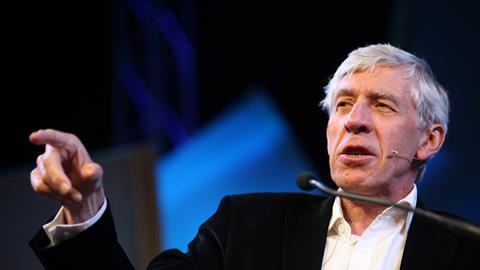For some of us of a certain age, the long-running House of Lords inquiry into the role of the lord chancellor and the government law officers continues to provide better entertainment than anything on the telly. Especially when past office-holders are quizzed by some of the sharpest legal minds around.
Yesterday's hearing was a classic. With impeccable political timing, Jack Straw, the last lord chancellor appointed by a Labour government, appeared before the Constitution Committee not just in the week when a former lord chancellor made history by entering Number Ten but the day after the not uncontroversial latest appointment to the ancient office.
All this gave Straw the excuse for some very pointed observations.
Straw, of course, was lord chancellor and secretary of state for justice from 2007 to 2010, an almost inconceivable tenure by today's standards. He also played a key role in the Blairite Constitutional Reform Act which 'modernised' the office of the lord chancellor - very much the subject of the noble lords' inquiry.
Cross-bencher Lord Faulks (Edward Faulks QC) led the inquisition by observing that Straw's views on judicial review seemed to have softened since 2011, when in evidence to the very same committee he grumbled about the 'broadening authority' of judges in political areas.
'Ah, the perils of the internet - previous inconsistent statements,' Straw retorted, before discursing on the row over the court rulings in Miller. (He seemed to suggest that the Mail's notorious 'Enemies of the people' headline had referred to the Supreme rather than the High Court, but he is not alone in that error.) He accused 'the then lord chancellor' of failing to speak out, 'as in my view she should have done'.
'And the lord chancellor's failure to defend the judiciary doesn't seem to have held her back,' Faulks retorted, to chuckles all round.
'Nope, that's absolutely true,' Straw agreed. Then, pausing to make a measured point, 'Though, if I may say so, it is a matter of record that a majority of Conservative members of parliament did not support the new prime minister in the ballots.'
'That is not a subject for us today,' Baroness Drake (Jeannie Drake), the committee chair, crisply adjudicated.
Proceedings became more personal when Lord Robertson (Labour's George Robertson) probed his old colleague on what he called 'coarsening in the political culture'. Straw had said that a lord chancellor's fitness for the job 'comes down to character' - an ability to appreciate that when they 'dress up in all the kit' to swear oaths in the Royal Courts of Justice that it is a different job to other ministerial appointments. Some of his successors had sworn the same oaths 'but I can’t say they necessarily followed them'.
'I don't want to go ad hominem,' he said, while doing so anyway. 'I don't know quite what Mr Cameron was thinking when he decided to appoint Lord Grayling (Chris Grayling) lord chancellor, because he showed very little ability to appreciate the sensitivities. He made a number of slightly aberrant decisions which had people scratching their heads,' Straw recalled, with a certain understatement.
Straw conceded that 'it then got better', singling out David Lidington and Robert Buckland for their 'instinctive sense of what their responsibilities were'. But, a trifle mischievously, he added: 'I'm surprised in a way' that no one has attempted to JR the prime minister's choice of lord chancellor on the basis of the criteria of the 2005 act.
That was a cue for Robertson to bring us right up to the present day. He noted that the just-appointed Brandon Lewis MP had 'led for the government in knowingly seeking to break international law'. Should there not be a provision in legislation that, for appointment as lord chancellor, previous conduct in breaking the law should be taken into account?'
Nope, said Straw, still the politician. 'I don't think we've got to the point where if you've got previous convictions by virtue of political stance you should be disqualified.' He observed that 'You could have dug out things I said when I was president of the National Union of Students - which I'm pretty pleased are not on the internet.'
'Lord Faulks is working on it,' the chair quipped. We await the skeletons with interest.
Straw produced one more memorable line, noting: 'Where there is a contest between government and the judiciary, the judiciary is going to win. Because the public trust judges: they don't trust politicians.'
We will have to take a politician's word for that.
































1 Reader's comment